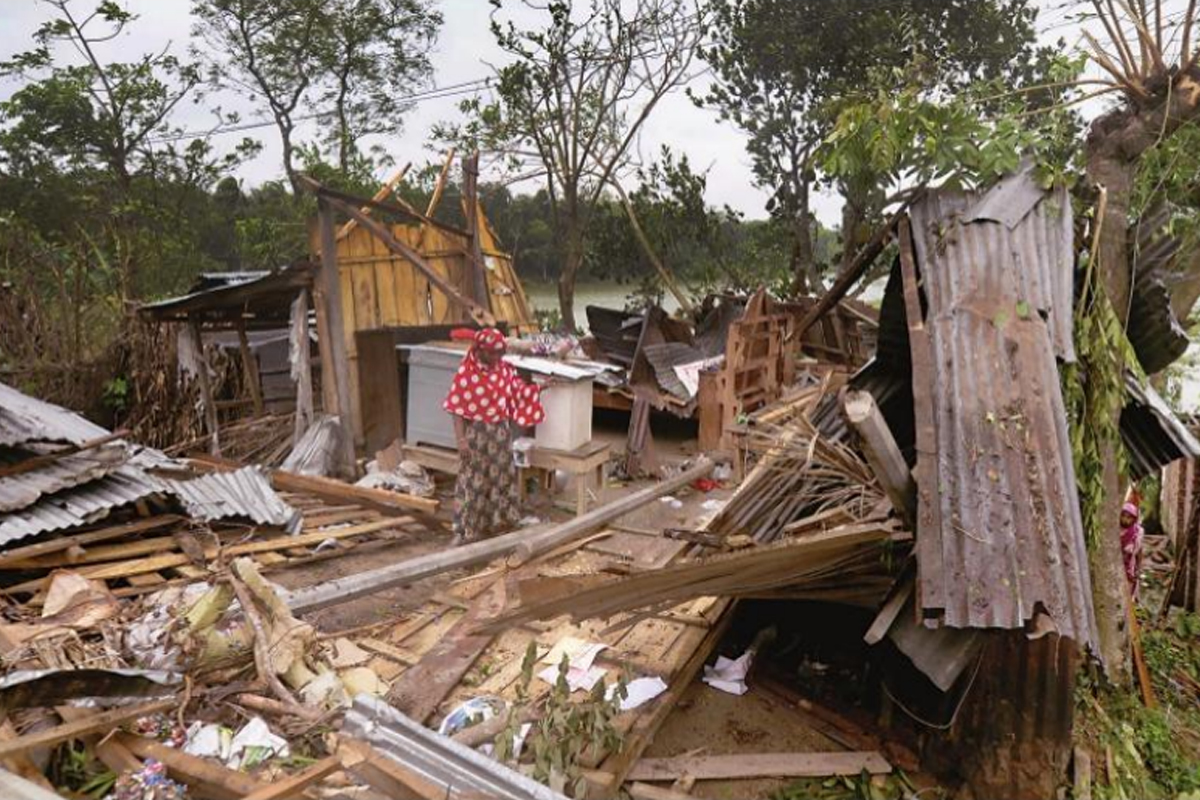Cyclone Amphan has not only been extremely destructive, it has come at a time when the region devastated by it in West Bengal, and to a lesser extent Odisha, was already suffering from the crisis of Covid-19 and the serious side-effects of the lockout and related steps taken to control this pandemic.
Migrant workers were returning but instead of bringing badly- needed earnings as in normal times, they were bringing news of debts and loss of livelihoods, accompanied by health problems.
Advertisement
So, the region was already in deep trouble and the capacity of the authorities to respond to needs of distressed people were already overstretched.
It is in this wider context that the challenges ahead after the cyclone and the need for generous help from the Union government as well as from non-government sources should be considered. In the prevailing circumstances there should be well-deserved appreciation for the helpful forecast and the related rescue effort.
All those who were involved in this and worked hard deserve the thanks of not just the affected people but the entire nation. Bangladesh also benefited from the forecast and warnings, and in facing the challenges ahead India must show togetherness and cooperation with its neighbor.
This experience also reveals how it is important for the Union government and the state governments, central and state agencies, units of decentralized governance and voluntary organizations to work in close harmony with each other keeping uppermost the welfare and safety needs of people.
Without such close operation the task of evacuating and sheltering nearly 700,000 people and that too with the extra precautions needed in pandemic times would not have been possible.
Some decades back such a situation would have led to much higher mortality and the ability to save many human lives is a matter of satisfaction even in the middle of all the damage and distress. Nevertheless, the loss of life that could not be avoided is a matter of great regret.
This is substantially related to overall poor infrastructure and housing conditions. In the reconstruction work for areas exposed more often to the fury of cyclones, storms and floods, the need for houses and infrastructure, particularly electricity and communication infrastructure, to be more resilient to disaster situations should get more attention.
However, the most immediate need will be to protect health and food-security. In addition to standing crops over a wide area being destroyed, ingress of seawater and salinity has damaged farmland and the prospects for the next crop as well. Prawn farming fisherfolk have also experienced heavy damage.
In many villages the earnings of migrant workers contribute to the expenses needed for sowing the new crop but this year this source was being denied to local farmers even before the cyclone struck. It has been reported how people were facing problems in accessing the announced relief supplies.
Now it is going to be a much more grim situation in terms of food security as well as rural livelihoods. In such a situation extended and innovative use of MGNREGA will be important and the prompt payment of wages for such work by the government will go a long way towards meeting some of the immediate needs of people.
The Union government had announced free food grain for general category people earlier and later more specifically for migrant workers and those without ration cards.
This is good. But in addition there should be some extra component of free grain for those who have been devastated by the cyclone. Fortunately, with the substantial stocks of food grains to which recent procurement has been added, the government can afford to make available more grain.
There is another way to add to this. As schools have been closed and anganwadis have not been functional for several weeks, a lot of grain and other food meant for mid-day meals and other nutrition schemes have been saved and this food should also be added to what has been announced already by way of free food grain for Covid times.
Generous philanthropists like Azim Premji have recently come forward to support the demand that the government should substantially increase its help for migrant workers and other needy sections in these difficult times. Now with the added devastation of cyclone, there is clearly much greater need for the Union government as well as philanthropists to be much more generous towards the people of those parts of West Bengal and Odisha which have suffered heavily in the cyclone.
NRIs and voluntary organizations can also make an important contribution in meeting the big challenges ahead. State governments should take adequate steps to make clear the complete transparency and honesty of their relief and welfare fund and then make use of innovative methods to avail the help of people from all over the country.
For example, people can be linked more closely to the benefits which their donations will bring. If a household which makes a donation of Rs. 20,000 can know that two or more farmers or farm-workers of a village could get critical help from this to reduce hunger and deprivation perhaps the longer-term involvement of donors will be higher.
The media can play a helpful role in all this by making people aware of the serious problems being faced by victims and the heartwarming changes which can be brought about by generous donations given by even middle-class households. The combined efforts of governments, philanthropists, voluntary organisations and common people will be needed very badly by people of the region devastated by Amphan.
The writer is a freelance journalist who has been involved with several social movements.











